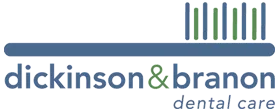
Protecting your child’s health with preventive dentistry.
There’s an old saying that an ounce of prevention is worth a pound of the cure—and it couldn’t be more true! Preventive care is invaluable for its ability to keep you healthy, helping you to avoid needing treatments for health issues later. If you begin focusing on prevention when your children are young, you can encourage them to build positive habits that can help them avoid health issues and live a longer, healthier life.
This is just as true for dentistry as it is for other areas of medicine. After all, we only get one set of adult teeth, and your child’s oral health has a very real impact on their overall health. Of course, treatments that restore your oral or overall health can transform your life when you need them, but it’s always best not to need them in the first place! But how does prevention make such a big difference in your kids’ oral and overall health? To help you understand, we’ve broken down why prevention really is the best medicine.
Prevention allows you to be proactive with your family’s health every day.
Daily preventive habits are all about keeping your teeth and gums healthy to avoid issues like cavities in the first place. Even simple habits like a thorough oral hygiene routine can make a significant difference in your entire family’s oral health. When you brush your teeth for two minutes twice a day, floss once a day, and use mouthwash daily, you remove plaque from the surface of your teeth and from around your gum line. This plays a huge role in preventing cavities and gum disease!
Eating a diet with balanced portions of lean meats, fruits and vegetables, whole grains, and dairy is also important for preventive dentistry because it provides vitamins and minerals that are essential for your oral and overall health. These nutrients help your teeth and gums stay healthy and boost your immune system, which plays a role in protecting your teeth and gums from bacteria. On the other hand, sugars and carbohydrate-rich foods impact the microbiome in your mouth by fueling cavity-causing oral bacteria. Adjusting your family’s diet with this in mind, and limiting less healthy foods, cuts down on how much sugar your teeth are being exposed to, which can help improve your oral health.
Prevention uses non-invasive treatments instead of more involved “reactive” treatments.
Relying on prevention gets you away from the old “reactive” style of dentistry, which involves doing restorative work like fillings and dental crowns after the damage has already been done. Instead, prevention focuses on dental evaluations every six months and smaller, non-invasive treatments like dental sealants or fluoride treatments for your kids to help prevent decay. This doesn’t mean that you or your kids will never need a cavity filled—most of us end up with a cavity or two at some point, and that’s okay!
Ensuring your family goes to regular dental appointments gives your dentist the chance to notice and address potential issues early, including noticing signs of tooth decay or gum disease early. This keeps treatment as minimal and non-invasive as possible, often requiring only a small filling or better flossing at home. Your dentist can also keep an eye out for problems with oral habits or diet as well as the development of your child’s teeth, oral posture, or airway.
Noticing these issues early gives dentists time to intervene with non-invasive treatments like Invisalign or myobrace, which can often address the underlying causes of crooked teeth without the need for braces, or myofunctional training, which uses exercises to strengthen the muscles in the face and tongue to help you or your child develop correct oral posture. Plus, using less invasive treatments and seeing their dentist more regularly helps your child have better experiences at the dentist. They’re much more likely to see dental visits in a good light and build positive relationships with the staff, which makes appointments so much easier and more enjoyable for you and your child, especially when they’re younger.
It works with the natural plasticity of younger patients.
Preventive dentistry has a unique set of benefits for younger patients because their jaws, teeth, and faces are still growing. This gives them natural plasticity, which allows dentists to use non-invasive treatments to guide the natural growth and development of your child’s jaws and teeth. Doing this helps prevent or greatly reduce future dental issues, such as overcrowding, crooked teeth, and misaligned bites. Identifying and treating these issues before they develop by guiding your child’s natural growth is the most elegant way to help their teeth and jaws function comfortably for a lifetime.
After all, it’s helping to guide their growth so that their teeth and jaws develop straight and even from the outset instead of needing to be adjusted later. While some children still need additional treatments down the track, these treatments are less involved and last for a shorter period of time than they otherwise would have. Your child benefits from a smile that functions and looks its best—all with minimally invasive treatments!
Preventive dentistry maintains your entire family’s oral health and saves money.
Bacteria are contagious—including the bacteria in your mouth that cause cavities and gum disease! When one member of your family has oral health issues like a cavity or gum disease, sharing food or drinks can spread the bacteria in their mouth, making the entire family more vulnerable to decay. As a result, ensuring everyone in the family keeps up with regular dental appointments and at-home care can make it easier to keep everyone’s oral health on track.
Practicing good oral daily habits, maintaining regular dental appointments, and needing less invasive treatments to prevent potential oral health issues and resolve problems early isn’t just better for your family’s oral health—it also saves you money! Your at-home routine is low cost, as are sealants and fluoride treatments, but they can each save you money by preventing cavities or gum disease. Misaligned bites and poor oral posture can contribute to a wide range of bigger symptoms, from oral health problems to issues like sleep apnea and stomachaches. By resolving misaligned bites and correcting oral posture, treatments like myobrace, Invisalign, and myofunctional training can prevent or relieve these issues. Similarly, resolving issues like overcrowding before it happens can prevent your child from needing to undergo more invasive and expensive treatments. Each of these factors has the potential to save you a lot of money in the long run!
It provides lifelong benefits.
Preventive dentistry keeps your teeth, gums, and jaws healthy and functioning at their best for a lifetime, but it doesn’t stop there! Your oral health has an active impact on your overall health. When your oral health is suffering, it can significantly impact your overall health. Periodontitis, for example, can allow oral bacteria into your bloodstream, causing issues like high blood pressure, making it difficult to control diabetes, and raising your risk of heart disease. The good news, however, is that the opposite is also true! Keeping your teeth and gums healthy prevents these negative effects and helps your immune system function at its best. Maintaining great oral health over your lifetime can help you feel better every day and live a healthier life overall—and those are massive benefits!
Preventive dentistry helps you prevent cavities, gum disease, and dental issues like misaligned bites, but don’t worry if your family still ends up with the occasional issue! Everyone (even us!) suffers from oral health issues once in a while. What matters is doing our best to prevent them and to catch them early, as doing so can help you and your children live longer, healthier lives. If you want help getting on top of your oral health, feel free to schedule an appointment. We can’t wait to see you at your healthiest yet!
